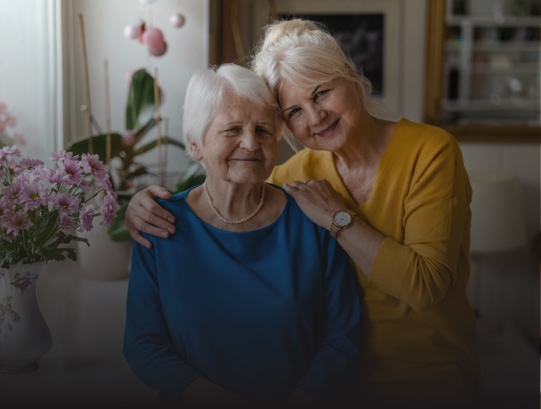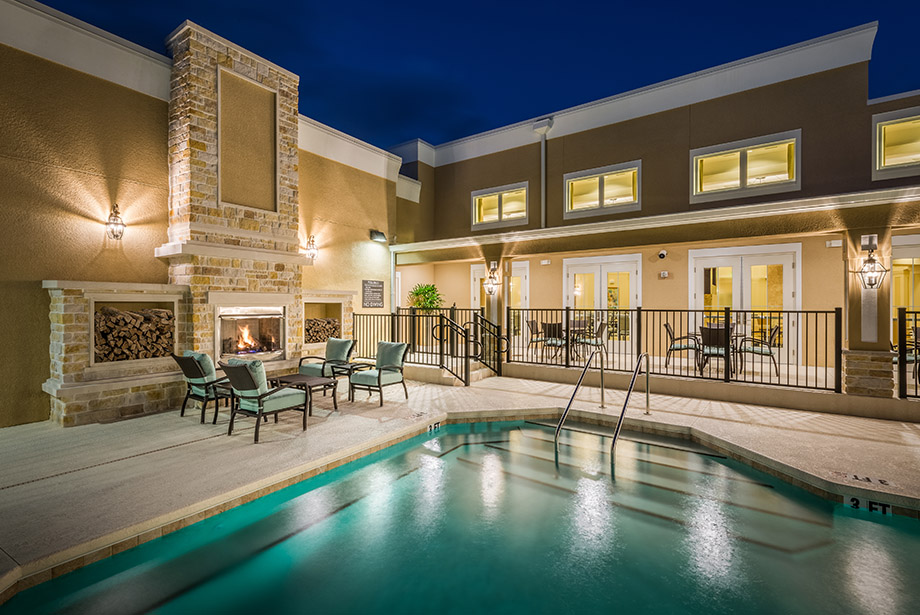Memory care is a specialized type of senior living designed to provide 24/7 support for people facing these challenges. When safety concerns, increased caregiver fatigue, changes in health, or signs of loneliness are present, it could be time to consider a move to memory care for your loved one.
When a loved one is experiencing memory loss due to conditions like Alzheimer’s or dementia, it can be overwhelming to figure out the best path forward. But you and your family can make the best decision when considering the signs that memory care could be beneficial and surround yourself with support.
Understanding Memory Loss
Memory loss can occur for many reasons, but not all cases are directly tied to aging. While minor memory lapses, like occasionally misplacing your keys, are a normal part of aging, more serious memory issues could indicate cognitive impairment related to conditions like Alzheimer’s or other forms of dementia. Symptoms to watch for include:
- Difficulty with everyday tasks
- Getting lost in familiar places
- Personality or mood changes
- Poor judgment
- Decline in communication skills
Key Indicators for Considering Memory Care
Deciding to move a loved one into a memory care community is never easy, but there are specific indicators that signal when it may be time to explore this option.
Safety Concerns
A significant red flag is safety. If your loved one wanders, leaves appliances on, or is prone to falls or injuries, the risks may outweigh what home care can manage. Memory care communities are designed with safety in mind, including secured areas and staff trained to address wandering behaviors.
Increasing Caregiver Stress
Caring for a loved one with memory loss can be physically and emotionally draining. Caregiver burnout can affect your well-being and ability to provide the best care for your loved one. If you’re feeling overwhelmed or unable to meet their needs, it may be time to seek professional support.
Changes in Health or Hygiene
Pay attention to noticeable weight loss, unkempt appearance, or missed medication doses. These could be signs that your loved one struggles to maintain their independence and requires additional supervision and assistance.
Loneliness or Withdrawal
Social isolation often exacerbates memory loss, leading to faster cognitive decline. If your loved one is often alone or seems withdrawn from social interactions, a memory care environment can provide the stimulation they need to stay connected.

Exploring Memory Care Communities
Choosing the right memory care community for your loved one is a crucial step filled with hope and compassion. These communities are specifically designed to provide a safe and supportive environment tailored to the needs of people with memory loss.
Personalized Care
A primary service provided is personalized care. Memory care staff are trained in understanding the complexities of cognitive decline. They are available around the clock to assist with daily tasks such as dressing, bathing, medication management, and meal preparation. Their compassionate approach ensures that residents feel respected and dignified, even in moments of confusion or frustration.
Structured Environments
Memory care communities also prioritize creating a structured yet engaging environment. Daily schedules often include activities such as exercise classes, arts and crafts, music therapy, and reminiscence sessions. These activities are enjoyable and strategically designed to stimulate cognition, encourage social interaction, and reduce anxiety.
Safety & Security
Safety and security are central to memory care. These communities are typically equipped with secured entrances and exits, motion-activated lighting, and easy-to-navigate layouts to minimize risks of wandering and falls.
Outdoor spaces, such as gardens or walking paths, are designed with safety in mind, allowing residents to explore and experience nature in a secure environment.
Focused on Nutrition
Memory care communities often provide nutritious, thoughtfully prepared meals tailored to meet residents’ dietary needs. Mealtime is treated as an opportunity for social interaction to foster connections among residents while maintaining routines that provide comfort and familiarity.
Continued Family Involvement
Families are also an integral part of the care process. Many communities offer family support groups, educational workshops, and regular updates to keep loved ones informed and involved. Open communication ensures that families and staff work together to deliver the best possible care for each resident.
Tips for a Smooth Move
The move to a memory care community can feel emotional for you and your loved one. But a little planning and focusing on communication can make the transition smoother. Steps for a successful transition include:
- Visit the community together: Familiarize your loved one with their new environment before moving day.
- Keep key belongings: Bring comforting, familiar items like photos, blankets, or a favorite chair to make their new room feel like home.
- Stay positive: Your attitude matters. Speaking about the move as an opportunity rather than a loss can help ease emotional resistance.
- Check-in regularly: Frequent visits and calls, especially during the adjustment period, show your support and help them settle in.
Empowering Families with Informed Decisions
Deciding on memory care is a deeply personal process that involves balancing emotional considerations, safety concerns, and practical needs. By understanding the benefits of memory care and recognizing when it might be necessary, families can feel confident supporting their loved ones.
Contact our compassionate team of associates today if you’re considering memory care and want guidance tailored to your family’s needs. We’re happy to guide you and your family through the process at Somerby Lake Nona.










